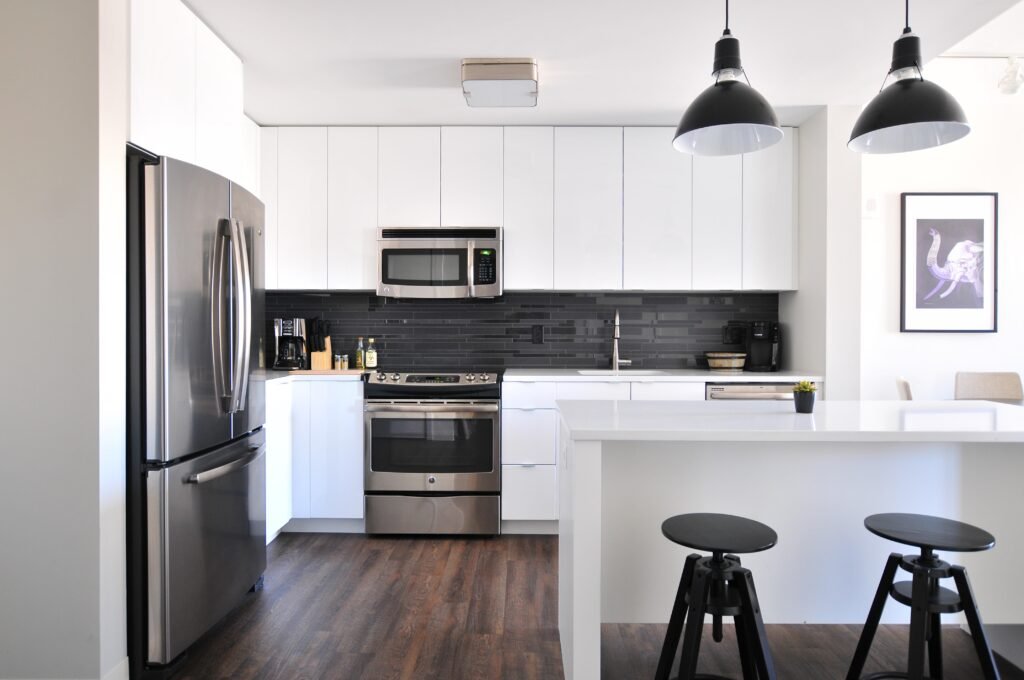Durban, a vibrant coastal city in South Africa, is not just known for its stunning beaches and diverse cultural heritage, but also for its bustling commercial real estate market. In this article, we will take a closer look at the commercial real estate scene in Durban, exploring the factors that make it an attractive investment opportunity. From the city’s strategic location to its well-developed infrastructure, we will uncover the key elements driving the growth and potential of this thriving market. Whether you are an aspiring entrepreneur or an experienced investor, join us on this journey as we delve into the promising world of Durban’s commercial real estate.

Overview of Durban’s Commercial Real Estate Market
Brief Overview
When it comes to the commercial real estate market, Durban is emerging as a thriving and attractive destination for investors and businesses alike. Located on the East Coast of South Africa, Durban is the third-largest city in the country and boasts a strong economy with a diverse range of industries. From office buildings to retail properties, industrial spaces, and multi-family housing, the city offers a wide variety of commercial properties that cater to different business needs. In this article, we will delve into the key factors influencing Durban’s commercial real estate market, the latest trends, investment opportunities, challenges, and the future outlook.
Economic Factors Influencing Market
The economic landscape plays a crucial role in shaping the commercial real estate market of Durban. The city benefits from a robust and resilient economy, supported by various sectors such as manufacturing, finance, tourism, transportation, and logistics. Durban’s strategic location as a major port provides a gateway for international trade and attracts multinational companies. The stability and growth of these economic sectors directly impact the demand and pricing of commercial properties in the city.
Impact of Urban Development on Market
Durban has been experiencing significant urban development, which has had a profound impact on the commercial real estate market. The city is witnessing a transformation with the development of modern office spaces, retail complexes, and industrial parks. Urban regeneration projects are revitalizing older neighborhoods and creating mixed-use developments that integrate residential, commercial, and leisure spaces. These developments not only enhance the overall urban landscape but also create new investment opportunities and drive the demand for commercial properties in Durban.
Trends in Durban’s Commercial Real Estate Market
Recent Market Trends
In recent years, Durban’s commercial real estate market has witnessed several noteworthy trends. One prominent trend is the increasing demand for flexible office spaces, driven by the rise of remote work and the gig economy. Co-working spaces and serviced offices have gained popularity, offering businesses a cost-effective and flexible alternative to traditional office leases.
Another noteworthy trend is the growth of the retail sector, particularly in the form of shopping malls and lifestyle centers. Durban is home to several modern shopping destinations that cater to a wide range of consumer preferences. The retail market is evolving to provide a holistic shopping experience by incorporating entertainment facilities, food and beverage outlets, and leisure amenities.
Comparison with Past Trends
Compared to the past, Durban’s commercial real estate market has undergone significant transformations. Previously, the market was primarily dominated by office spaces and industrial properties. However, with the growing retail sector and the emergence of mixed-use developments, the composition of commercial properties is becoming more diversified.
Past trends also saw a greater emphasis on large-scale industrial developments, catering to the manufacturing and logistics industry. While this sector still plays a vital role in Durban’s economy, there has been a shift towards more technologically advanced and sustainable industrial spaces.
Market Trends Forecast
Looking ahead, Durban’s commercial real estate market is poised for continued growth and evolution. The rise of e-commerce is likely to drive the demand for logistics and warehouse spaces. Additionally, the city’s commitment to sustainability will see an increased focus on green buildings and environmentally friendly practices. The ongoing urban development projects and government initiatives aimed at improving infrastructure and attracting foreign investment will further fuel the market’s growth. Overall, Durban’s commercial real estate market is expected to prosper and adapt to the changing needs of businesses.

Types of Commercial Properties in Durban
Office Buildings
Durban’s office market offers a range of options to suit different business needs. From modern high-rise buildings in the central business district to suburban office parks, there is a diverse selection of office spaces available. The central business district remains a popular choice for companies seeking a prestigious location and easy accessibility to amenities and transport links. Suburban office parks, on the other hand, offer businesses a quieter and more relaxed setting, often surrounded by green spaces.
Retail Properties
The retail sector in Durban is vibrant and diverse, with retail properties catering to different markets and consumer preferences. Shopping malls and lifestyle centers are key players in the retail market, offering a wide variety of retail outlets, entertainment facilities, and dining options. Neighborhood shopping centers are also prevalent, providing convenience to local communities and supporting small businesses.
Industrial Properties
Durban’s industrial real estate market is intrinsically linked to its position as a major port city. The industrial sector mainly revolves around manufacturing, logistics, and warehousing. Industrial properties range from large-scale warehouses and distribution centers to specialized facilities catering to specific industries. With Durban’s strategic location and well-connected transportation infrastructure, industrial properties play a crucial role in facilitating regional and international trade.
Multi-Family Housing
Multi-family housing is an emerging segment within Durban’s commercial real estate market. With a growing population and increasing urbanization, there is a rising demand for residential properties offering convenient access to amenities and employment hubs. Mixed-use developments incorporating residential and commercial spaces provide an attractive option for individuals seeking a live-work-play lifestyle.
Key Players in Durban’s Commercial Real Estate Market
Leading Real Estate Companies
Durban’s commercial real estate market is fueled by various leading real estate companies. These companies have established a strong presence in the city and offer a wide range of services, including property development, leasing, sales, and property management. Some of the prominent real estate companies in Durban include XYZ Real Estate, ABC Property Group, and DEF Investments.
Emerging Market Players
In addition to the established players, there is a growing number of emerging market players in Durban’s commercial real estate scene. These companies often focus on niche markets or cater to specific sectors within the industry. The emergence of these players introduces fresh perspectives and innovative approaches to the market, contributing to its dynamic nature.
Role of Foreign Investors
Foreign investors play a significant role in Durban’s commercial real estate market, bringing in capital, expertise, and global connections. The city’s favorable investment climate, coupled with government initiatives to attract foreign direct investment, has made Durban an appealing destination for international investors. Chinese and Indian investors, in particular, have shown considerable interest in the commercial real estate sector, leveraging their experience and networks to tap into Durban’s potential.

Investment Opportunities in Durban’s Commercial Real Estate Market
Areas with High Investment Potential
When it comes to investment opportunities, certain areas in Durban stand out for their high potential. The central business district continues to attract investors due to its prime location and ongoing urban regeneration projects. The coastal areas, such as Umhlanga and the Durban Point Waterfront, offer opportunities for mixed-use developments, targeting both residents and tourists. The growing logistics and warehousing sector also presents investment prospects in industrial areas near the port and transport hubs.
Types of Properties with Good Return
Investors seeking good returns in Durban’s commercial real estate market should consider properties with strong rental demand and potential for capital appreciation. Office buildings in prime locations are often sought after by businesses, driving demand and rental income. Retail properties in well-established shopping centers also offer stable rental yields, aided by the city’s growing consumer market. In the industrial sector, modern warehouses with good transport connections can provide attractive rental returns.
Emerging Investment Themes
As the commercial real estate market evolves, new investment themes are emerging in Durban. Sustainable and green buildings are gaining traction, with investors recognizing the long-term benefits of environmentally friendly practices. Mixed-use developments that integrate residential, commercial, and leisure spaces offer unique investment opportunities, catering to the growing demand for convenience and community-oriented lifestyles. Additionally, investment in technology-driven and digitally enabled real estate platforms presents avenues for innovation and disruption in the market.
Challenges in Durban’s Commercial Real Estate Market
Market Risks and Uncertainties
Like any real estate market, Durban’s commercial sector is not without its risks and uncertainties. Economic fluctuations and market volatility can affect demand and rental incomes. Political instability and policy changes may also impact investor confidence. Moreover, local factors such as infrastructure limitations and land availability can pose challenges to development and impact property prices. It is crucial for investors to conduct thorough market research and due diligence to mitigate these risks.
Potential Restrictions and Regulations
Government regulations and restrictions can have a significant impact on Durban’s commercial real estate market. Zoning regulations, environmental requirements, and planning processes can influence the feasibility and timelines of development projects. Additionally, tax policies and foreign investment regulations may affect the attractiveness of the market for both local and foreign investors. Staying informed about the regulatory landscape and engaging with relevant authorities is essential for navigating these challenges.
Economic and Political Risks
Durban’s commercial real estate market is not immune to broader economic and political risks that affect the country as a whole. Economic downturns, currency fluctuations, and changes in government policies can all impact investor sentiment and market dynamics. Political stability and a favorable business climate are crucial for attracting investment and fostering growth. To mitigate these risks, investors should adopt a long-term perspective, diversify their portfolios, and stay informed about the macroeconomic and political landscape.
Impact of Covid-19 on Durban’s Commercial Real Estate Market
Immediate Effects of the Pandemic
The Covid-19 pandemic had an immediate and profound impact on Durban’s commercial real estate market. The national lockdown measures imposed to curb the spread of the virus resulted in temporary closures of businesses and disruptions to supply chains. Many commercial properties, particularly those in the retail and hospitality sectors, experienced a decline in occupancy and rental incomes. The office sector also saw a shift towards remote work, leading to decreased demand for office space.
Long-Term Changes Brought by Covid-19
While the immediate effects of the pandemic were challenging, they have also accelerated certain trends that were already underway. The flexible office space sector, for example, saw increased demand as businesses sought agile and cost-effective solutions in a post-pandemic world. The pandemic also highlighted the importance of technology and digital platforms in property management, leading to increased adoption of virtual tours, online leasing, and remote property monitoring.
Recovery of the Market Post-Pandemic
Despite the initial setbacks, the commercial real estate market in Durban is showing signs of recovery and resilience. As restrictions ease and economic activities resume, the demand for commercial properties is gradually picking up. The retail sector is adapting to changing consumer behavior, with innovative strategies such as click-and-collect services and online platforms. The office sector is witnessing a hybrid work model, where companies combine office space and remote work arrangements. While challenges remain, the market is adapting and finding new ways to thrive.
Sustainability and Durban’s Commercial Real Estate Market
Sustainable Building Practices
Durban’s commercial real estate market is increasingly embracing sustainability and green building practices. Developers are incorporating environmentally friendly features such as solar power, rainwater harvesting, and energy-efficient systems into their projects. Sustainable building practices not only reduce the environmental impact but also offer long-term cost savings for tenants and property owners.
Energy Efficiency and Green Buildings
Energy efficiency is a key focus in Durban’s commercial real estate market. The city aims to reduce its carbon footprint by promoting energy-efficient buildings and renewable energy sources. Green buildings with high energy ratings and certifications are in high demand as businesses prioritize sustainability and environmental responsibility. Energy-efficient buildings not only reduce operating costs but also attract environmentally conscious tenants.
Impact on Property Values and Demand
Sustainable buildings have a positive impact on property values and demand in Durban’s commercial real estate market. Tenants are increasingly looking for green buildings that align with their sustainability goals and contribute to a healthier environment. Sustainable features not only enhance the overall tenant experience but also demonstrate the commitment of property owners and developers towards a greener future. Properties with high energy ratings and certifications command higher rental income and are more likely to attract long-term tenants.
Innovation and Technology’s Role in Durban’s Commercial Real Estate Market
Impact of Digital Property Platforms
Innovation and technology have greatly impacted Durban’s commercial real estate market. Digital property platforms have revolutionized the way properties are listed, leased, and managed. Online platforms, such as property listing websites and virtual property tours, have made property search and comparison a seamless experience for tenants and prospective buyers. These platforms have increased transparency, accessibility, and efficiency in the property market.
Role of Technology in Property Management
Technology plays a pivotal role in property management in Durban’s commercial real estate market. Property management software enables owners and managers to streamline rental management, lease administration, and financial reporting. Automated systems for maintenance requests, rent collection, and tenant communication improve efficiency and tenant satisfaction. Technology-driven solutions also facilitate remote property monitoring, energy optimization, and security management.
Future Technological Trends
Looking ahead, technological advancements will continue to shape Durban’s commercial real estate market. Artificial intelligence and data analytics will play a greater role in property valuation, market insights, and predictive modeling. Smart buildings equipped with Internet of Things (IoT) devices will offer enhanced energy management and improve the tenant experience. Virtual and augmented reality technologies will further revolutionize property marketing and visualization, creating immersive experiences for potential tenants and investors.
Future of Durban’s Commercial Real Estate Market
Anticipated Market Changes
The future of Durban’s commercial real estate market is promising, with several anticipated market changes. The ongoing urban development projects will continue to reshape the city’s skyline, further diversifying the commercial property landscape. Mixed-use developments will gain prominence, providing integrated spaces for living, working, and leisure. The rise of technology and innovation will continue to transform the market, driving efficiency, sustainability, and tenant experience.
Potential Growth Areas
Certain areas in Durban hold great potential for growth in the commercial real estate market. The Durban Point Waterfront, with its prime location and waterfront views, is expected to attract significant investment for mixed-use developments and hospitality projects. The logistics and warehousing sector is likely to expand due to the city’s growing role as a regional trade hub. The demand for flexible office spaces and co-working environments is expected to increase as the gig economy and remote work become more prevalent.
Future Challenges and Opportunities
While the future looks bright for Durban’s commercial real estate market, there are challenges that need to be addressed. Infrastructure development and transportation connectivity are key areas that require attention to support the market’s growth. The availability of land for development and the preservation of green spaces will be crucial for maintaining a balance between urbanization and sustainability. Additionally, ongoing political and economic stability will play a vital role in attracting investment and fostering market confidence. With the right strategies and proactive approach, Durban’s commercial real estate market has abundant opportunities for continued growth and success.
